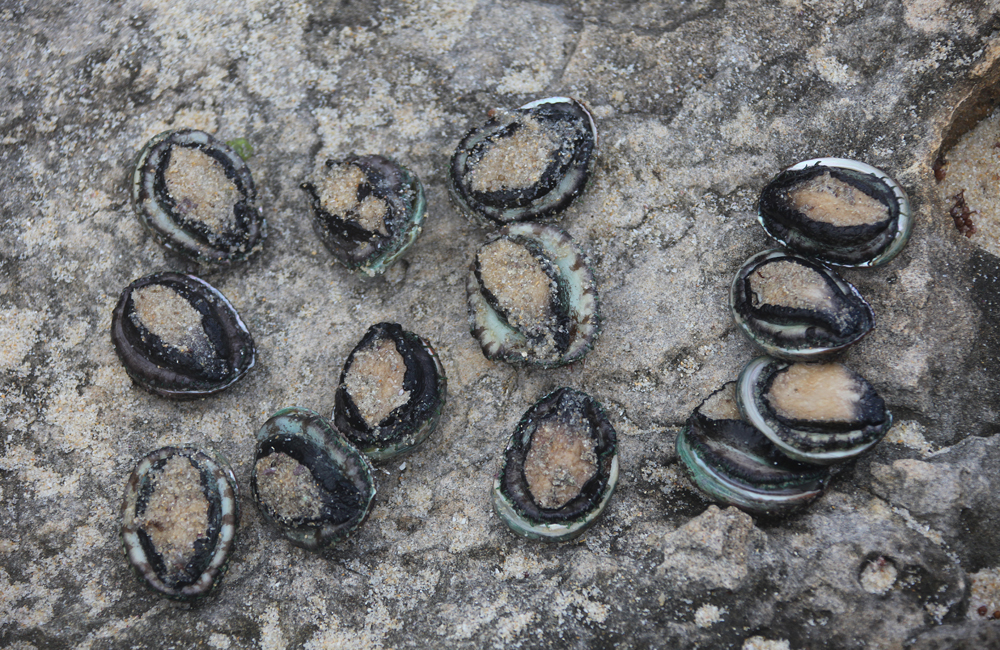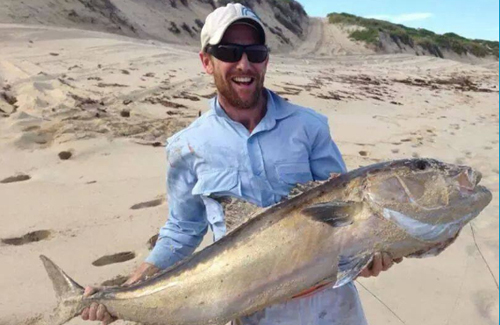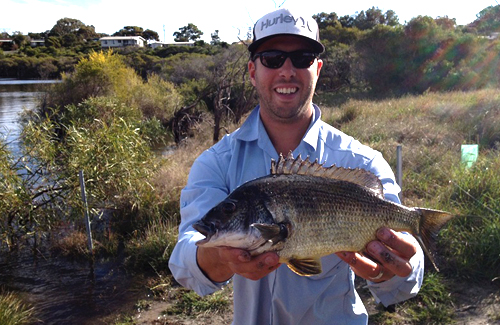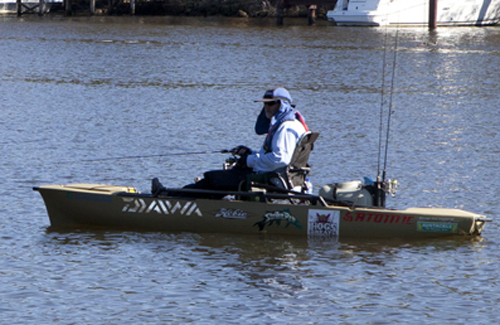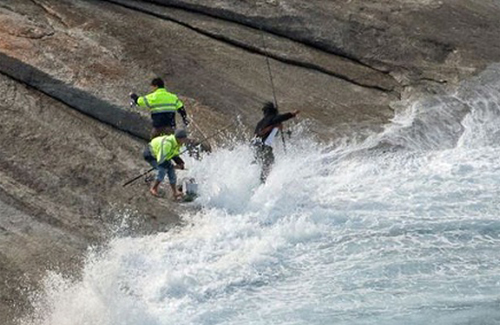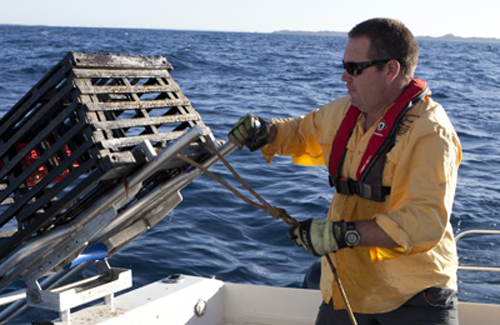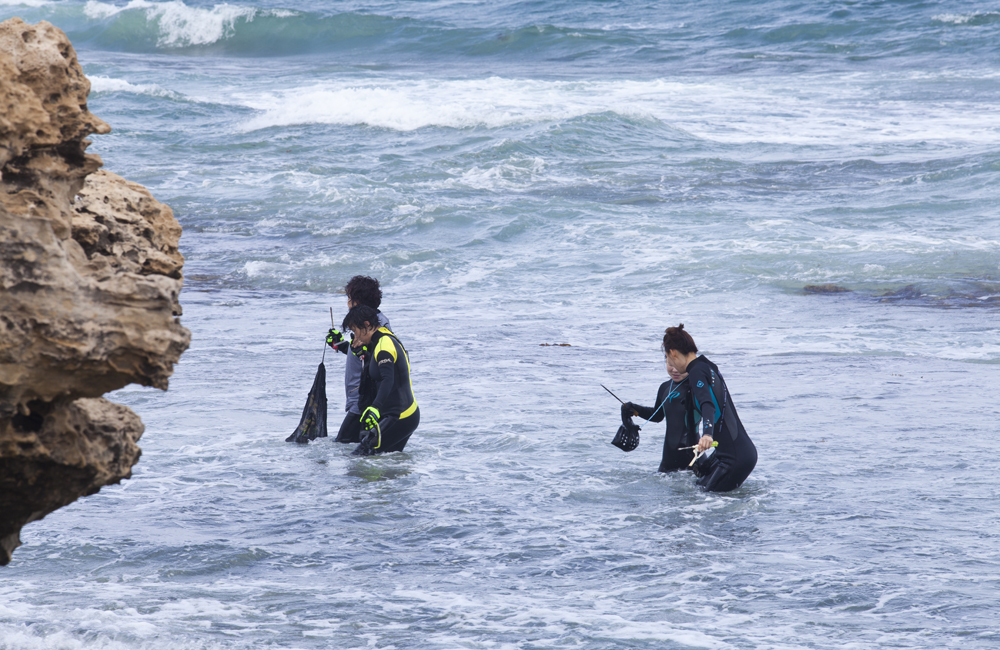
Don’t put your life on the line! WA weather can be unpredictable in late summer.
When fishing for abalone on reef-tops, it is important to follow these safety tips:
Safety tips when fishing for abalone
- Carry your catch in a loose-weave net bag; this will allow water to pass through and not become a dragging weight.
- Attach your measuring gauge to your wrist; don’t hang it around your neck.
- Study the waves before you get into the water and keep an eye on the swell while fishing – it is easy to be injured on reefs. If you are unsure whether conditions are too rough, don’t go in.
- Wear protective footwear and a wetsuit or light clothing that will not become too heavy when wet.
- Know how to swim. There are many situations where as a fisher you might be required to swim during the course of your fishing activities; either for recreation or in an emergency. If you fish, you should know how to swim for your own safety.
For more on learning how to swim, see royallifesaving.com.au
- If you do get into trouble, try to stay calm and raise one arm (an international distress signal) to attract help.
- Shark sightings. Please report all shark sightings directly to the Water Police on 9442 8600. This number is staffed 24 hours, seven days a week and will activate any required response.
Keep informed of the latest reported sighting and tagged shark detection information by checking the Shark Activity Map or follow the Surf Life Saving WA twitter feed @SLSWA. The Shark Activity Map provides beach users with ‘real time’ information on reported sightings and tagged shark detections, as well as access to Surf Life Saving WA’s twitter feed and current alerts and warnings issued by the Department of Fisheries. Remember the map shows available information – not all sharks are tagged, or sightings reported, so be Sharksmart when using the water.
People are asked to refrain from phoning rangers direct for updates as these phone lines need to be available to coordinate shark sighting response activities.
For more information about shark sighting response plans and procedures as well as shark safety tips visit the Sharksmart website.
